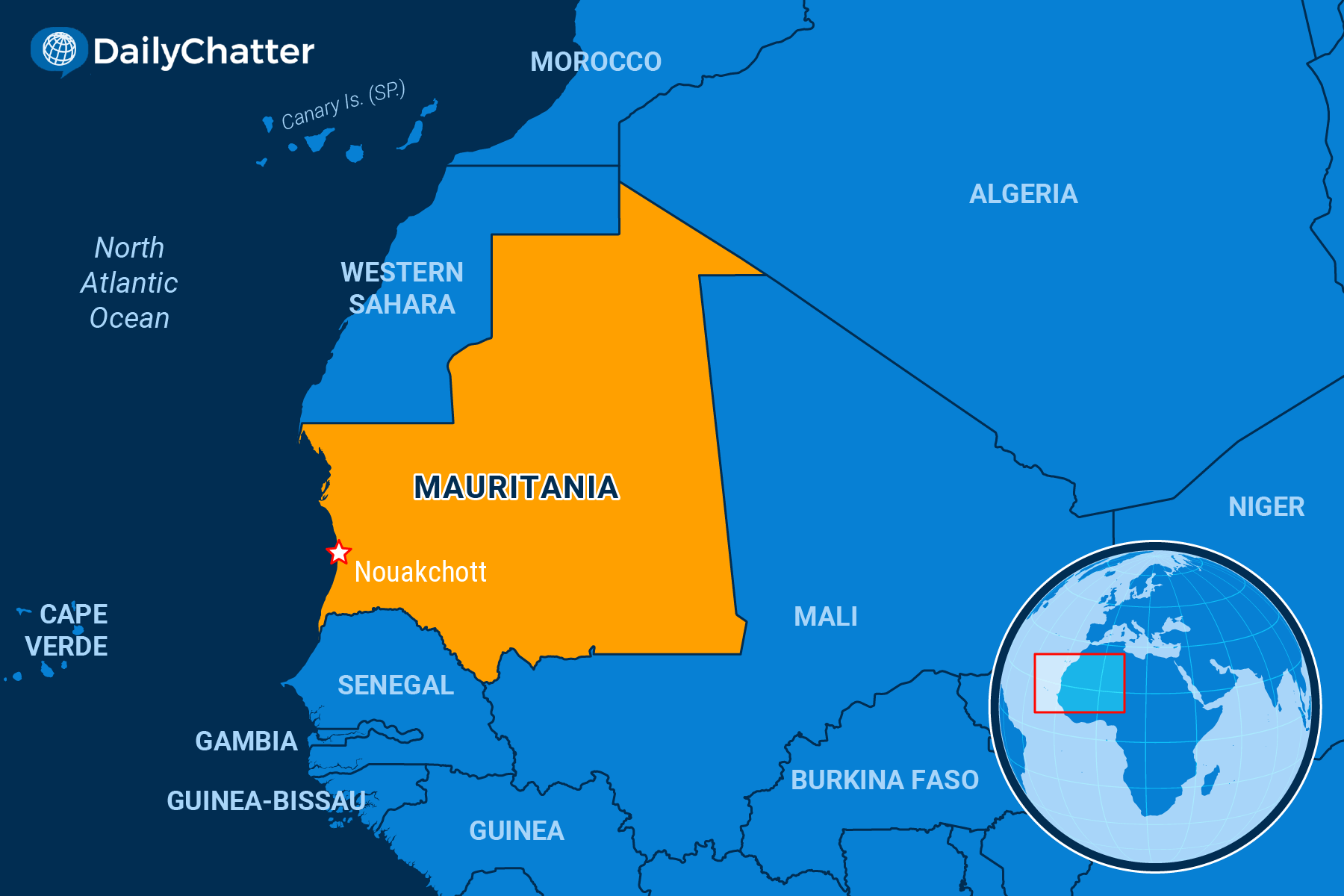
The World Today for May 25, 2023
NEED TO KNOW
Inch By Inch
MAURITANIA

Voters in Mauritania cast ballots in parliamentary and local government elections on May 13 and will do so again on May 27. The two rounds of voting are the first since President Mohamed Ould Ghazouani assumed power four years ago. They will become a mandate for the changes that he appears to be trying to bring to the West African country.
In the first round, the president’s party El Insaf comfortably won 80 of the 176 seats in parliament, announced Dah Abdel Jelil, the head of the independent electoral commission (CENI), Africanews wrote. Thirty-six other seats went to parties allied to the president and 24 to the opposition, nine of them to the Islamist Tewassoul movement, which wants a strict application of Islamic law.
Up for grabs are the remaining 36 parliamentary seats.
Meanwhile, opposition parties are already charging that election officials have permitted “fraud and chaos” to dominate polling places, Middle East Monitor wrote. They called on voters to reject the results in order to protect democracy. Poll station workers have barred party representatives from observing the administration of voting, raising suspicions, added the Journal of Africa.
Critics made similar claims in 2019 when Ghazouani won office – the first time Mauritania transitioned from one democratically elected president to another, wrote Al Jazeera. Meanwhile, the president’s predecessor in office, Mohamed Ould Abdel Aziz, faces corruption charges – an extraordinary prosecution in a conservative nation where coups and the military’s meddling in politics have been the norm for years.
Ghazouani, a former general, was Aziz’s right-hand man, but his party is still expected to win the vote, reported Agence France-Presse. Not only is his El Insaf party the only organization in the country to field candidates in every region, but Ghazouani has at least tried to address his people’s economic and security problems.
While jihadists have been running rampant through Burkina Faso, Mali, Niger, and Nigeria, Mauritania has not seen an attack since 2011, though the recent escape of four terrorists from a jail in the capital of Nouakchott precipitated a scare. Russian and Western officials have sought to gain more influence in the country precisely because it is an island of relative stability in the region, argued Politics Today.
The president has also expanded food and financial subsidies to the poorest Mauritanians, for example. The coronavirus pandemic and inflation stemming from Russia’s invasion of Ukraine have hiked the cost of living, however, undermining his progress on his humanitarian goals.
Ghazouani has also made halting progress on addressing the institution of slavery in Mauritania, where Arab-Berber Moors can own Afro-Mauritanians as if they were property, as the Paris-based Arab Reform Initiative explained. As the United Nations found, the country criminalized slavery in 2015 but has not necessarily enforced the law as comprehensively as possible.
Mauritania faces mountains of challenges. Still, the country’s people and leaders seem to be chipping away at them, slowly.
To read the full edition and support independent journalism, join our community of informed readers and subscribe today!
Not already a subscriber?
If you would like to receive DailyChatter directly to your inbox each morning, subscribe below with a free two-week trial.
Support journalism that’s independent, non-partisan, and fair.
If you are a student or faculty with a valid school email, you can sign up for a FREE student subscription or faculty subscription.
Questions? Write to us at [email protected].
